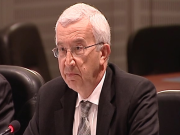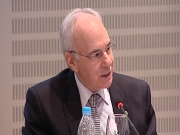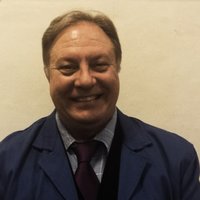WUC participates in Moscow Conference on
“Prospects for Ecological Education for Sustainable Development”
WUC was invited to conduct a special session on the future of higher education at the 20th international conference organized in association with Green Cross International at the Gorbachev Foundation in Moscow on June 26-27, 2014.
International cooperation in the field of education can be a powerful catalyst for achieving sustainability, especially in developing countries with expanding economies. The purpose of the conference was to develop practical recommendations in the field of Ecological Education for Sustainable Development with reference to the background of national and international experience.
 Alexander Likhotal, President of Green Cross International and a member of the Board of Directors of WUC delivered an address on “Environmental Education and Socio-Cultural Modernization”. Our present way of life has resulted in an unprecedented crisis that compels us to evolve new ways of thinking and acting. Social change has been unable to keep pace with the speed of economic and technological change. We confront a problem of social and cultural transition, not merely of technology. Ten years from now the challenges will be much greater than today if we fail to respond now. Demographic change will dramatically alter the balance of geopolitical forces by 2050, with 90% of the world population in what are today developing countries. Adapting strategies such as circular economy are essential, but not sufficient. We need a new paradigm – not just a change in model, but a change in the very basis of civilization founded on the recognition that human beings are the primary resource for development and the central purpose of economy should be development of human beings, rather than unbridled consumption. Ecological education has an important role to play because ecology is universal in conception and embraces all dimensions of life.
Alexander Likhotal, President of Green Cross International and a member of the Board of Directors of WUC delivered an address on “Environmental Education and Socio-Cultural Modernization”. Our present way of life has resulted in an unprecedented crisis that compels us to evolve new ways of thinking and acting. Social change has been unable to keep pace with the speed of economic and technological change. We confront a problem of social and cultural transition, not merely of technology. Ten years from now the challenges will be much greater than today if we fail to respond now. Demographic change will dramatically alter the balance of geopolitical forces by 2050, with 90% of the world population in what are today developing countries. Adapting strategies such as circular economy are essential, but not sufficient. We need a new paradigm – not just a change in model, but a change in the very basis of civilization founded on the recognition that human beings are the primary resource for development and the central purpose of economy should be development of human beings, rather than unbridled consumption. Ecological education has an important role to play because ecology is universal in conception and embraces all dimensions of life.
 In his introduction to the work of World University Consortium, WUC Chair and CEO Garry Jacobs, spoke of a coming revolution in global higher education as an essential need and inevitable response to these compelling global challenges. Increasing access and raising quality are essential, but the revolution must go further. There needs also to be a radical reorientation of higher education to attune it to the rapidly changing needs of the 21st century, most especially the demands for employability and ecological sustainability. At a more fundamental level, he called for the introduction of ecological thinking in all fields of knowledge. Ecological thinking is needed to overcome the divisive, fragmented, piecemeal, overly specialized approach to academia prevalent today and replace it with comprehensive, holistic ways of thinking that embrace all aspects of the whole and lead to integrated organic solutions, not merely mechanistic arrangements. No one system or cultural perspective can meet the diverse needs of the world today. Therefore we need a global system of higher education that draws on perspectives from many different cultures.
In his introduction to the work of World University Consortium, WUC Chair and CEO Garry Jacobs, spoke of a coming revolution in global higher education as an essential need and inevitable response to these compelling global challenges. Increasing access and raising quality are essential, but the revolution must go further. There needs also to be a radical reorientation of higher education to attune it to the rapidly changing needs of the 21st century, most especially the demands for employability and ecological sustainability. At a more fundamental level, he called for the introduction of ecological thinking in all fields of knowledge. Ecological thinking is needed to overcome the divisive, fragmented, piecemeal, overly specialized approach to academia prevalent today and replace it with comprehensive, holistic ways of thinking that embrace all aspects of the whole and lead to integrated organic solutions, not merely mechanistic arrangements. No one system or cultural perspective can meet the diverse needs of the world today. Therefore we need a global system of higher education that draws on perspectives from many different cultures.
 Alberto Zucconi, Secretary General of WUC, concluded the session with a presentation of the mission, objectives and planned activities of the Consortium and the fundamental principles on which it based. Education is the only known social technology capable of preparing humanity to consciously surmount the barriers to effective action. Education plays a crucial role in the social construction of reality. The world today urgently needs a paradigm change in education in order to enable people to deal effectively with the mounting challenges facing humanity. A revolution in Higher Education is upon us and no force or agency on earth can ultimately prevent it. The question is not whether change is in the offing, but whether that change will be in the desired and most desirable direction. WUC has been established to attempt to steer the momentum toward the best possible future.
Alberto Zucconi, Secretary General of WUC, concluded the session with a presentation of the mission, objectives and planned activities of the Consortium and the fundamental principles on which it based. Education is the only known social technology capable of preparing humanity to consciously surmount the barriers to effective action. Education plays a crucial role in the social construction of reality. The world today urgently needs a paradigm change in education in order to enable people to deal effectively with the mounting challenges facing humanity. A revolution in Higher Education is upon us and no force or agency on earth can ultimately prevent it. The question is not whether change is in the offing, but whether that change will be in the desired and most desirable direction. WUC has been established to attempt to steer the momentum toward the best possible future.
Presentations:
Coming Revolution in Higher Education by Garry Jacobs
Stop wasting the best natural resource of every nation: Their own people – A Manifesto for human resources protection and promotion by Alberto Zucconi
